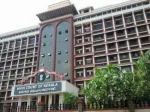Key Points
SC bench led by CJI Sanjiv Khanna to hear plea
Petitioners argue Act violates judicial remedy rights
Hindu & Muslim groups file opposing pleas
Court earlier barred fresh suits on religious structures
A bench of Chief Justice of India Sanjiv Khanna and Justice Sanjay Kumar will hear the plea.
The petition has sought the top court's direction allowing courts to pass appropriate orders to ascertain the original religious character of a place of worship.
The petitioner Nitin Upadhyay, a law student, has also challenged section 4(2) of the Act that barred proceedings to change the religious character, besides prohibiting filing of fresh cases for the same.
"The Centre has transgressed its legislative power in barring the judicial remedy, which is a basic feature of the Constitution. It is well established that the right to judicial remedy by filing suit in a competent court cannot be barred, and the power of courts cannot be abridged, and such denial has been held to be violative of basic features of the Constitution, beyond legislative power," the petition stated.
It added that the Act mandated preservation and maintenance of the religious character of places of worship without barring changes in the "structure, edifice, construction or building" in these places.
"Structural change is permissible to restore the original religious character of the place," the petitioner argued.
The petition further submitted that the Act did not prohibit any scientific or documentary survey to ascertain the religious character of the place, the plea said.
The apex court is seized of several petitions pertaining to challenges to the Act and strict implementation of the Act. The petitions had challenged the constitutional validity of Sections 2, 3, 4 of the Places of Worship (Special Provisions) Act 1991, which they said violates the principles of secularism and rule of law, which is integral part of Preamble and basic structure of the Constitution.
Daughter of the Kashi Royal Family, Maharaja Kumari Krishna Priya; BJP leader Subramanian Swamy; Chintamani Malviya, former Member of Parliament; Anil Kabotra, a retired army officer; advocates Chandra Shekhar; Rudra Vikram Singh, resident of Varanasi; Swami Jeetendranand Saraswati, a religious leader; Devkinandan Thakur Ji, resident of Mathura and a religious guru and advocate Ashwini Upadhyay among others have filed the pleas in the apex court against the 1991 Act.
According to the pleas, the sections violated several fundamental rights, including the right to equality and the freedom to practice religion.
Indian National Congress Party, CPI(ML), All India Majlis-e-Ittehad-ul-Muslimeen (AIMIM) head Asaduddin Owaisi, Jamiat Ulama-I-Hind, India Muslim Personal Law Board, Committee of Management Anjuman Intezamia Masjid which manages the mosque in the Gyanvapi complex, Shahi Idgah mosque committee of Mathura -- among others had also filed applications in the top court against the petitions challenging the validity of certain provisions of a 1991 law.
They challenged the petitions filed by some Hindu petitioners saying that entertaining the pleas against the Act will open floodgates of litigations against countless mosques across India. Filing intervention application in the case they sought dismissal of pleas challenging Places of Worship Act.
On December 12, the top court restrained all courts across the country from passing any effective interim or final order, including orders of survey in pending suits against existing religious structures.
It had also ordered that no fresh suits can be registered over such claims while the court is hearing pleas challenging the Places of Worship (Special Provisions) Act, 1991.
The Places of Worship Act prohibits altering the religious nature of any place of worship and imposes strict penalties for violations. However, the dispute relating to the Ram Janmabhoomi-Babri Masjid at Ayodhya was kept out of its purview.
Leave a Comment
Thank you! Your comment has been submitted successfully.







Reader Comments
We welcome thoughtful discussions from our readers. Please keep comments respectful and on-topic.